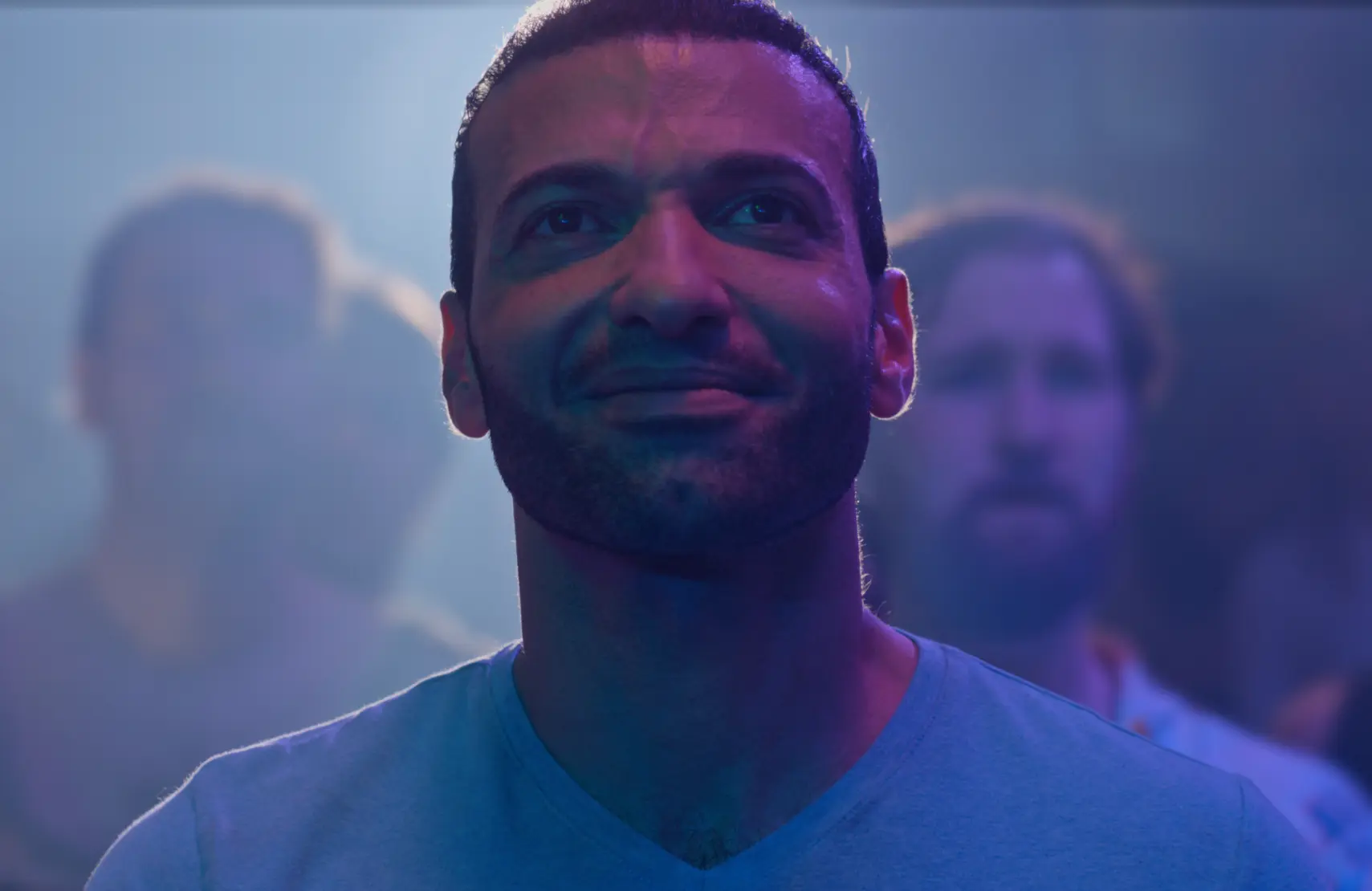‘Immigrant Stories Are As Varied As Our Stories’: The Making of Little America
-
 Haaz Sleiman in “The Son” episode of Little America, now streaming on Apple TV+.
Haaz Sleiman in “The Son” episode of Little America, now streaming on Apple TV+.Little America is the perfect show for de-stressing from a long day or week. Each self-contained, half-hour episode tells a quirky, entertaining, and undeniably moving story. Each show leaves you feeling enriched and just a bit more grateful for the life you’ve got.
Little America is inspired by a collection of first-person photo essays for Epic Magazine featuring recent immigrants to the United States and the very human strategies they undertake to adapt to life here. In my review I called Little America the best thing on Apple TV+ right now, and praised the way it “takes the emotion and noise out of one of our most contentious political topics.”
Little America is an unusual collaboration between producer Lee Eisenberg and journalist Joshuah Bearman — unusual in that the idea began with TV and then went to prose, rather than the other way around. They developed both the first-person accounts on Epic and their lightly fictionalized versions for TV. The writing and producing team includes Kumail Nanjiani and Emily V. Gordon (The Big Sick), Alan Yang (Master of None), and Epic co-founder Joshua Davis.
At the TCA winter press tour in California, I caught up with Eisenberg and Bearman to discuss process of making this great little show, which has already been picked up for a second season.
AB: So the TV guy had the idea first?
Lee Eisenberg: I had the initial idea and then I went to Josh. I didn’t really know what I wanted beyond wanting to do a series about immigrants. I wanted it to be an anthology series and based on true stories, and I thought that Epic would be a great place to start soliciting those stories.
Joshuah Bearman: We have a whole team of people — researchers and writers, journalists and colleagues in publishing — who went looking for stories. They cast a wide net and brought in about 150 stories. We winnowed that down to the 15 stories that we polished up and published on Epic.
Eisenberg: There’s a story that we’re talking about for Season 2 that’s an Uber driver I had a year ago. He had an incredible story, so I got his card and the Epic researchers sat down with him and his story is incredible. So the stories are really coming from everywhere. My dad’s Israeli — I keep asking him for his story. We’re looking for the stories everywhere.
AB: Then what happened?
Eisenberg: Then, as we started thinking about the best way to approach it as a TV show, we started adding producers that we really wanted to work with. So I called Alan Yang because one of my inspirations was Master of None — the “Parents” episode that they did in Season 1. He signed on, and then I called Kumail (Nanjiani) and Emily (Gordon) and they signed on. I’ve never worked on anything before where my first choice for everyone, just said yes.
AB: It’s interesting you mention Master of None, because no two episodes in that show are quite the same, they all have a slightly different tone, and that’s true of Little America, too. Some episodes are upbeat, some are melancholic, and the beats are different. Like the Mélanie Laurent episode has this mystery — “wait, who’s the immigrant here?”
Eisenberg: (laughs) Is this a mistake? Did they forget to put the immigrant in this episode?
Bearman: The variety is by design. A good story collection has all different tones and feelings and plot lines. It’s very specifically wanting to stay away from a uniformity of — like, “the inspiring story of an immigrant who overcomes the odds,” right? Because life is more complicated. As you said, there’s melancholic stories, there are happy stories, some are overcoming challenges. The idea was to create a collective portrait and to show that immigrant stories are as varied as all of our stories.
Eisenberg: Some episodes have flashbacks, some have no flashbacks. We have an episode, “The Son,” that basically takes place outside of the U.S. for 97% of the episode, and it’s not until the final few scenes that you come here. We have another episode, “The Cowboy,” that all takes place in Oklahoma. We did the treatment with his family sending cassette tapes to him. And as he plays the tapes, he’s imagining his family there in Oklahoma with him.
“The Son,” “The Cowboy,” and six other highly watchable episodes from the first season of Little America are all available now on Apple TV+.
People are talking about Little America in our forums. Join the conversation.
Aaron Barnhart has written about television since 1994, including 15 years as TV critic for the Kansas City Star.
TOPICS: Little America, Apple TV+, Master of None, Alan Yang, Emily V. Gordon, Kumail Nanjiani, Lee Eisenberg